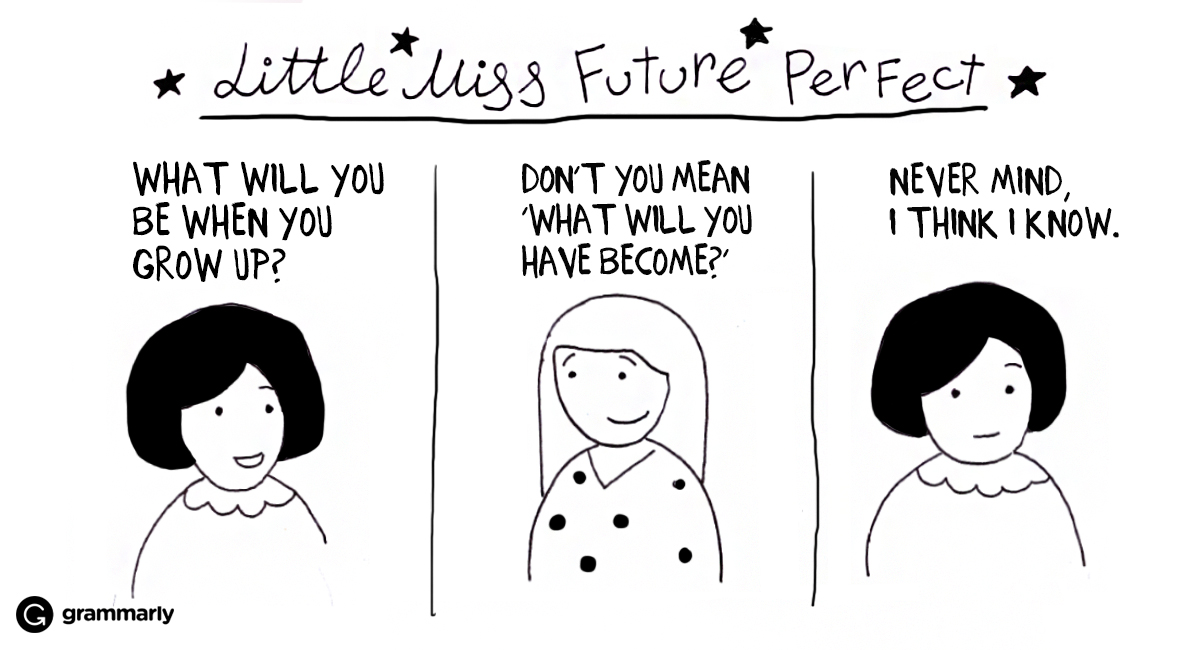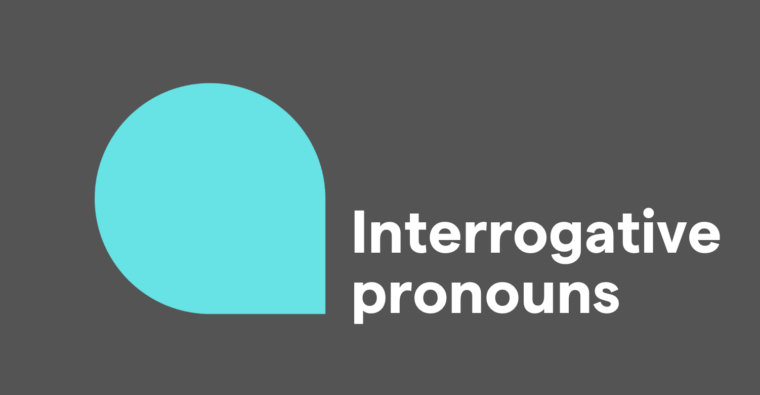The future perfect is a verb tense used for actions that will be completed before some other point in the future.
Key words: Verb, past participle, tense, preposition
The future perfect tense is for talking about an action that will be completed between now and some point in the future. Imagine that your friend Linda asks you to take care of her cat for a few days while she goes on a trip. She wants you to come over today at noon so she can show you where to find the cat food and how to mash it up in the bowl just right so that Fluffy will deign to eat it. But you’re busy this afternoon, so you ask Linda if you can come at eight o’clock tonight instead.

“No, that won’t work! At eight o’clock I will have left already,” she says.
What does the future perfect tell us here? It tells us that Linda is going to leave for her trip some time after right now, but before a certain point in the future (eight o’clock tonight). She probably shouldn’t have waited until the last minute to find a cat sitter.
The future perfect formula
The formula for the future perfect tense is pretty simple: will have + [past participle]. It doesn’t matter if the subject of your sentence is singular or plural. The formula doesn’t change.
When to use the future perfect tense
Sometimes, you can use the future perfect tense and the simple future tense interchangeably. In these two sentences, there is no real difference in meaning because the word before makes the sequence of events clear:
But without prepositions such as before or by the time that make the sequence of events clear, you need to use the future perfect to show what happened first.
When not to use the future perfect tense
The future perfect tense is only for actions that will be complete before a specified point in the future. In other words, the action you’re talking about must have a deadline. If you don’t mention a deadline, use the simple future tense instead of the future perfect tense.
The deadline can be very specific (eight o’clock) or it can be vague (next week). It can even depend on when something else happens (after the parade ends). It just has to be some time in the future.
How to make the future perfect negative
Making a negative future perfect construction is easy! Just insert not between will and have.
You can also use the contraction won’t in the place of will not. They won’t have finished decorating the float before the parade.
How to Ask a Question with the future perfect tense
The formula for asking a question in the future perfect tense is will + [subject] + have + [past participle]:
Prepositional phrases that often go with the future perfect
By this time next week, Linda will have left for her trip. Three days from now, we will have finished our project. At midnight, the party will have ended. Will you have eaten already? Chester will not have arrived by the time the parade is over. When I travel to France, I will have been to ten countries. My sister will have cleaned the bathroom before the party. As soon as someone buys this chair, I will have sold all the furniture I wanted to get rid of.
Common regular verbs in the future perfect tense
| Infinitive | Future Perfect | Negative | Question |
| to ask | will have asked | will not have asked | will you have asked. . . ? |
| to work | will have worked | will not have worked | will he have worked. . . ? |
| to call | will have called | will not have called | will I have called. . . ? |
| to use | will have used | will not have used | will they have used. . . ? |
Common irregular verbs in the future perfect tense
| Infinitive | Future Perfect | Negative | Question |
| to be* | will have been | will not have been | will I have been . . . ? |
| to have | will have had | will not have had | will you have had . . . ? |
| to do | will have done | will not have done | will she have done . . . ? |
| to say | will have said | will not have said | will we have said . . . ? |
| to get | will have gotten** | will not have gotten | will they have gotten . . . ? |
| to make | will have made | will not have made | will you have made . . . ? |
| to go | will have gone | will not have gone | will he have gone . . . ? |
| to take | will have taken | will not have taken | will you have taken . . . ? |
| to see | will have seen | will not have seen | will I have seen . . . ? |
| to come | will have come | will not have come | will it have come . . . ? |
*Be careful when using the verb “to be” in the future perfect tense. The construction is easy to confuse with the future perfect continuous tense.
**The past participle of “to get” is gotten in American English. In British English, the past participle is got.
![]()






